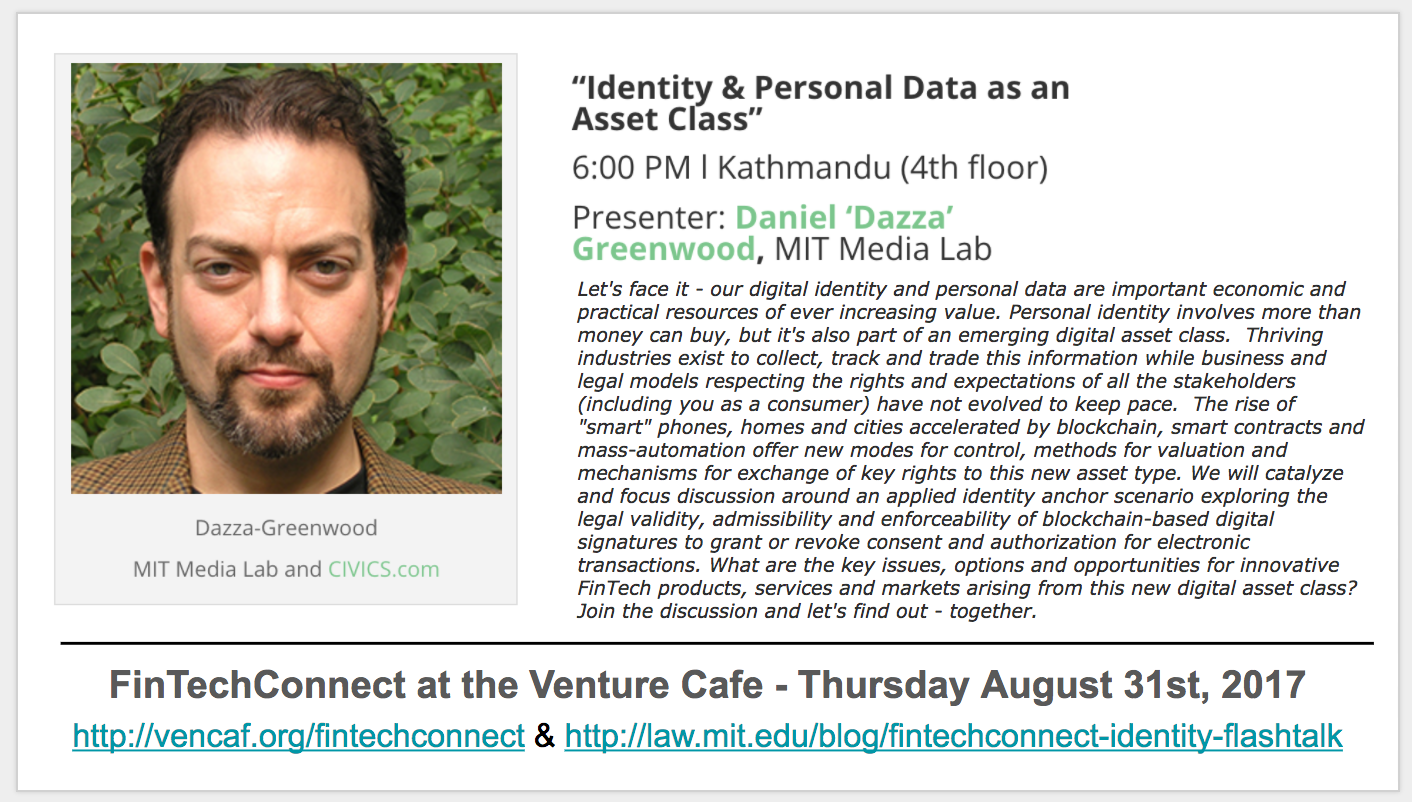FinTechConnect FlashTalk
- This site is based on a August 31 FinTechConnect Fashtalk which can be found at: https://law.mit.edu/blog/fintechconnect-identity-flashtalk
Let’s face it - our digital identity and personal data are important economic and practical resources of ever increasing value.
Identity as an Asset
Personal identity involves more than money can buy, but it’s also part of an emerging digital asset class.
Comments
New York based MIT-Law Collaborator Caitlin Stilin-Rooney noted that “There are different attributes of ones identity that that are tied into economics:
- Brands (Supreme, KITH, Louis Vuitton)
- Clubs (Country clubs, politial parties, school clubs etc)
- An endorsement
- Physical location and “check ins”
- Purchase behavior
- Social network
New York based software engineer Brian McFeeley noted: “If you aren’t paying, you are the product. The more time I spend thinking about it the more I feel like services like the Internet in the large but also to an extent social networking should probably be a utility. There’s a pretty fundamental perverse incentive for a company that acts as a discovery agent for content to also transact on the content that it displays to you. I think I do need something that’s really interesting to think about in the context of the Internet but ultimately I think it’s something of a lost cause without a stronger means of ownership for an individual over their online presence.”
Personal Data as an Asset
Thriving industries exist to collect, track and trade personal data while business and legal models respecting the rights and expectations of all the stakeholders (including you as a consumer) have not evolved to keep pace.
Current Models
The rise of “smart” phones, homes and cities accelerated by blockchain, smart contracts and mass-automation offer new modes for control, methods for valuation and mechanisms for exchange of key rights to this new asset type.
Anchor Scenario
To catalyze and focus discussion, consider the following applied identity anchor scenario exploring the legal validity, admissibility and enforceability of blockchain-based digital signatures to grant or revoke consent and authorization for electronic transactions.
- https://law.mit.edu/blog/core-identity-blockchain-project
- https://mocktrial.github.io/BlockchainDigitalSignatures-2017/
- https://github.com/MockTrial/BlockchainDigitalSignatures-2017/wiki
Discussion Questions
What are the key issues, options and opportunities for innovative FinTech products, services and markets arising from this new digital asset class? Join the discussion and let’s find out - together.”
Relevant Materials
- This Page: https://mitmedialab.github.io/law.MIT.edu/IdentityAndData.html
- law.MIT Blog Post: https://law.mit.edu/blog/fintechconnect-identity-flashtalk
